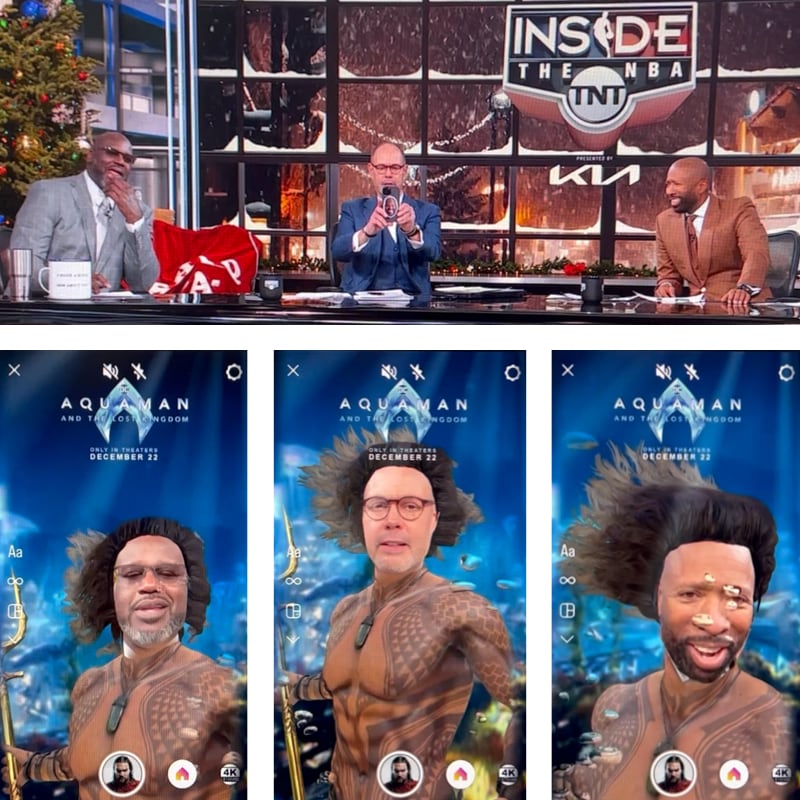Aquaman and the Lost Kingdom / Warner Bros.
AR Campaign
Ruler of Atlantis
To remind fans of their love for Jason Momoa's Aquaman in advance of the release of Aquaman and the Lost Kingdom, Warner Brothers turned to PBM to let fans become the King of the Seven Seas—with an understanding from the outset that a degree of authenticity was needed, from his long flowing locks of hair and the unique way they behave underwater (typically achieved by the master VFX artists at ILM) to the iconic fish-scale armor that's been a part of the character's design since his debut in 1941.
In addition, an alt version of the lens featuring the shirtless Arthur Curry (Aquaman's civilian alter ego) was planned. A fun way for fans to pretend to a superhero's physique for sure, but an additional challenge in terms of creating an eye-pleasing experience that wouldn't fall into a rubbery uncanny valley.
The Hair
A number of techniques exist in modern video games and VFX system for simulating hair, but few of those techniques are supported by our target platforms on Instagram, TikTok, and Snapchat.
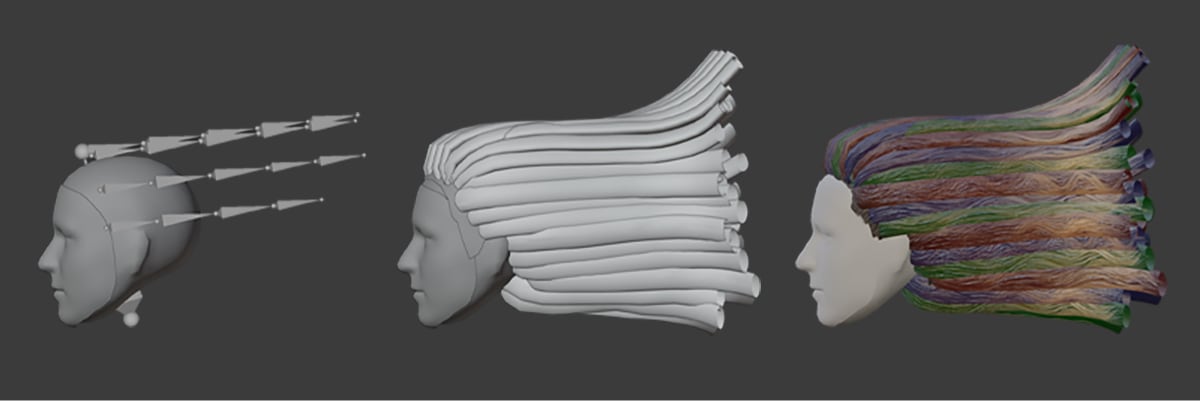
We took multiple passes at hair meshes and armatures before settling on an approach that treated individual locks of hair as hollow tubes controlled by a central octopus-like skeleton, allowing us to wave and swish the hair in a delayed aquatic response to user movement.
For an additional touch of wavelike motion, a custom shader was written to undulate the hair's texture as we approach the tips of each lock, further mimicking the constant sinusoidal drifts of the ocean.
The Armor
We knew that getting the iconic fishscales on Aquaman's armor was key to capturing the look, but the hiqh-quality ILM models we were given access to were too complex and intricate for direct use on a social AR platform—and introducing geometry for every fish scale would result in severe performance issues.
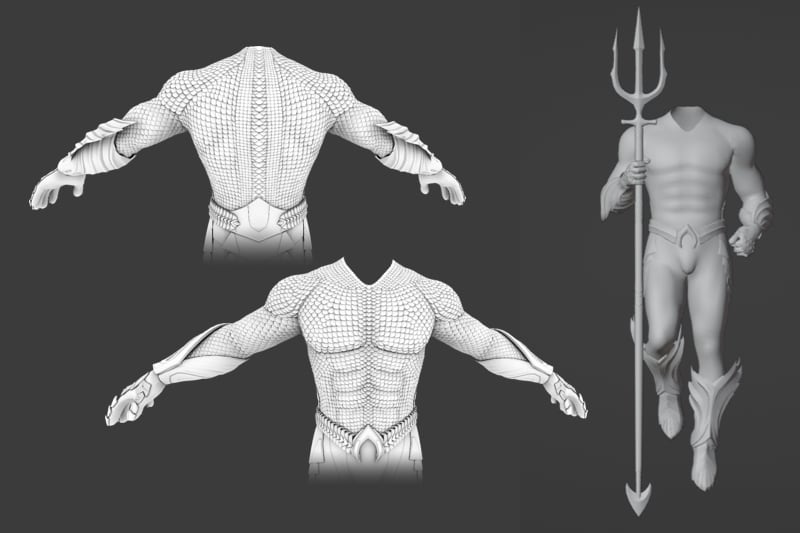
Instead, we used the common video game technique of texture baking to carefully capture the nooks and crannies of the armor, allowing us to paper those details onto a smooth, low-poly body that would be snappy and performant on mobile phones.
Every platform has its own lighting and 3D rendering systems, so getting a consistent look across Instagram, TikTok, and Snap while taking advantage of dynamic reflections required careful attention to color and lighting.
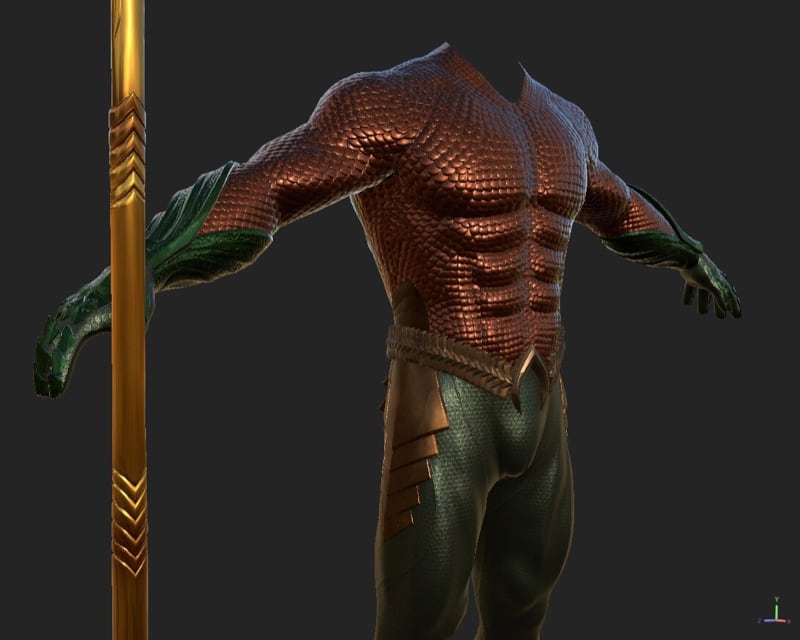
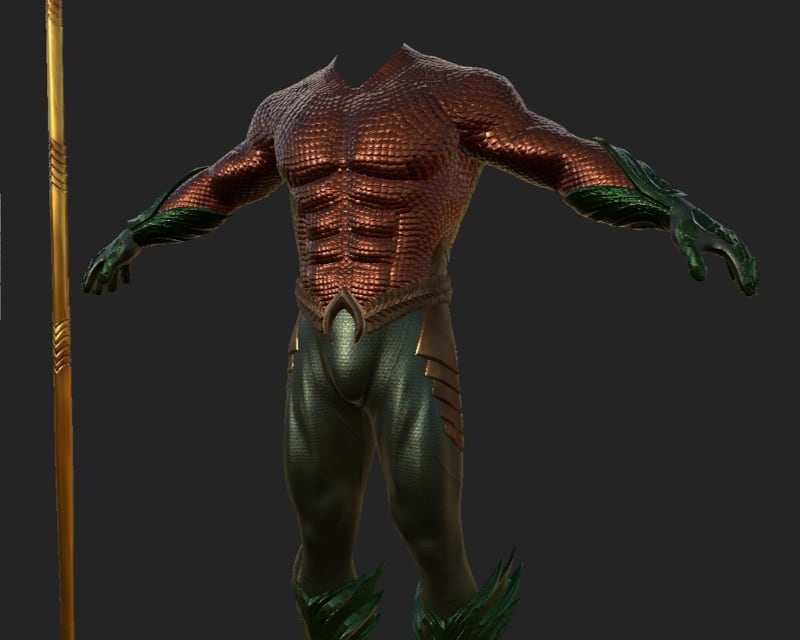
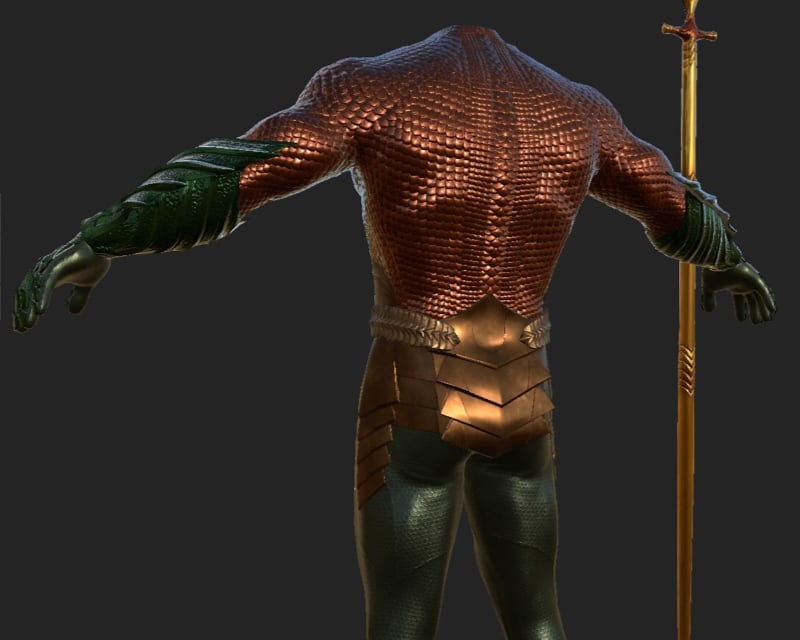
The Physique
Finding a dramatic pose and highlighting the hero's physique were identified as our key challenge for the shirtless Arthur Curry alter-ego lens. We ensured muscles would "read" in different 3D lighting setups by touching up contours and shadows just as a film's makeup department might.
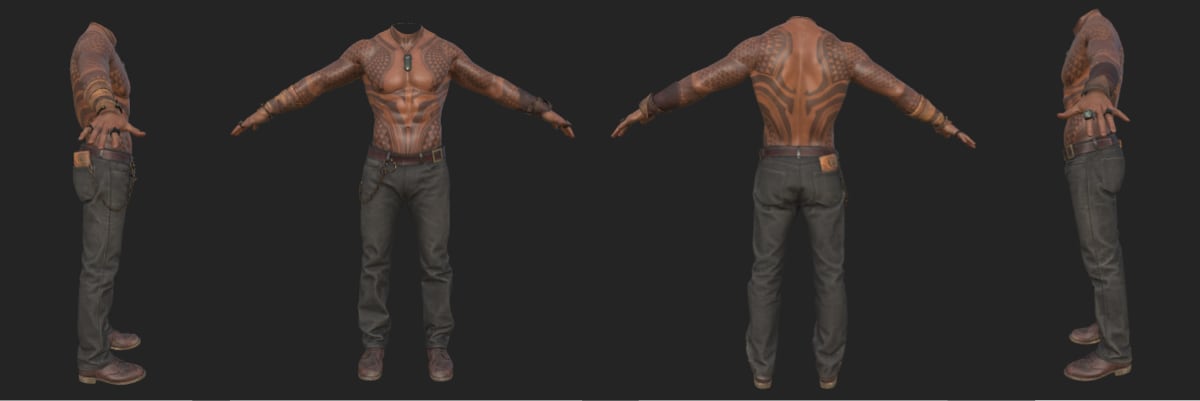
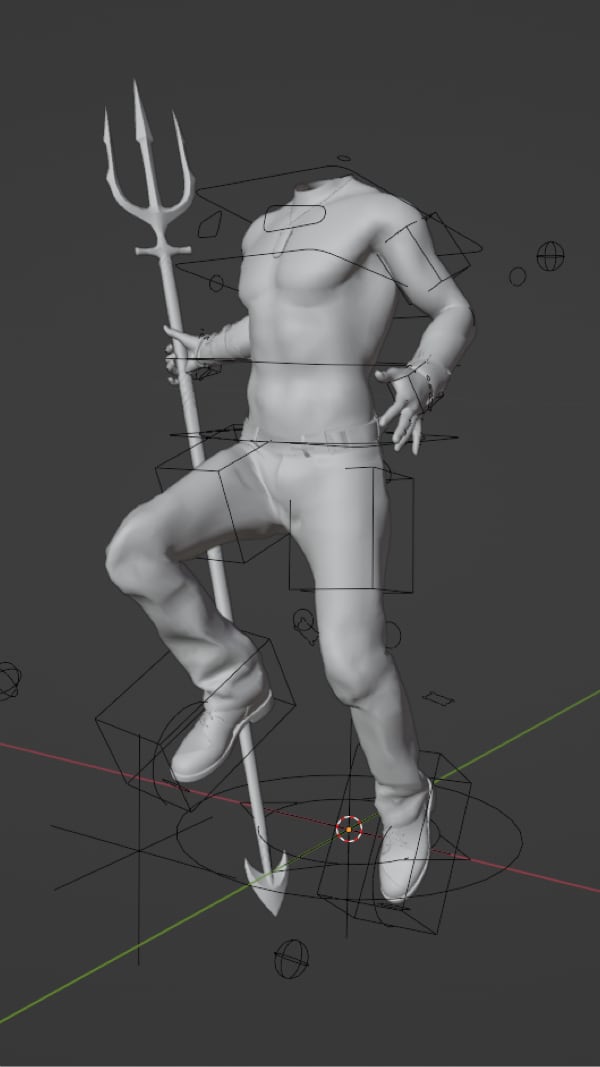
Putting It All Together
Getting a consistent look for a campaign across AR platforms requires attention to their unique rendering and lighting systems—each platform has its own approach to how light and 3D objects interact.
In some cases, additional design and programming work is needed. For example, the custom shaders used so that bubbles in the scene refract and distort the user, their costume, and the background in real time had to be tailored to conform to each platform's rendering pipeline.
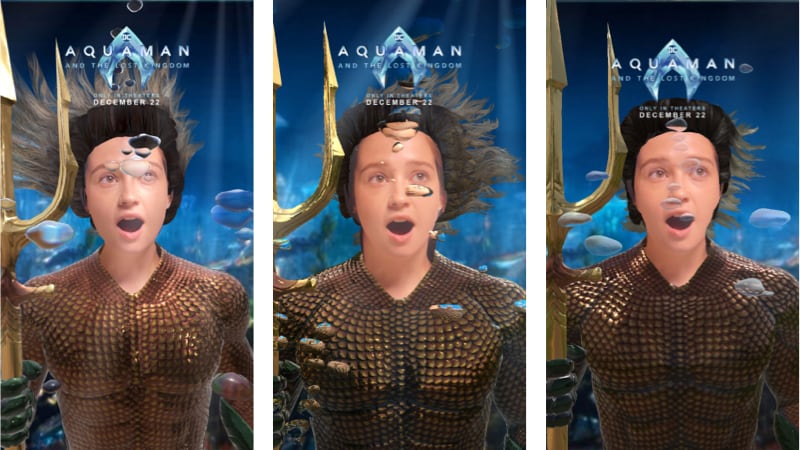
The Results
The Aquaman AR campaign was a blast for both fans and talent, pushing its popularity beyond social AR platforms and resulting in a huge splash out of the gate. The campaign racked up tens of thousands of interactions in just the first few weeks as part of the push that propelled the film to a box office record for DC movies in 2023.
Boasting a share rate that beat benchmarks while gaining pickups by key influencers and making waves on broadcast TV, the campaign was a powerhouse for user-generated content.
